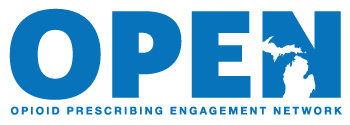Opioids in the Workplace
- Karl J. Ruth Jr.
- Apr 9, 2019
- 2 min read

You’ve heard of painkillers and how they can help manage your worst ailments. However, you may not be familiar with the side effects that come with them. Addiction to prescription painkillers, or opioids, is a national emergency. Nearly 100 Americans die every day from an opioid overdose, with over 40,000 opioid-related deaths each year. Shockingly, many of these instances started with a routine doctor visit.
In Michigan for 2017 there were more deaths from drug overdoses than car accidents, according to Michigan.gov, totaling 2,729 for the year.
What Are Opioids?
Opioids are extremely common—perhaps more than you realize. The CDC defines opioids as “a class of drugs used to reduce pain.” If you’re using a painkiller, chances are it can be defined as an opioid.
However, not all opioids are the same. There is a wide range of legal and illegal drugs that are classified as opioids. For example, Vicodin, a legal painkiller commonly prescribed to patients, is an opioid. By comparison, heroin, an illegally manufactured drug that has no medical use, is also an opioid.
Below are some other common opioids. If you have chronic pain, you probably know at least one of these drugs:
OxyContin
Percocet
Codeine
Methadone
Fentanyl
How Can I Reduce My Risk of Addiction?
Opioid abuse is not happening in a vacuum. Even if you are not using opioids, your life may be affected by loved ones who are. This can indirectly affect your job performance and contribute to the overall opioid crisis. Lasting reform can only happen if individuals take charge of their situation and educating yourself is the first step toward healthy pain management.
Don’t be tricked into thinking opioids are your only option for chronic pain. Speak with your doctor or visit cdc.gov/opioids to learn more about opioid-free treatment options or to seek help for an opioid addiction.
Want Additional Information?
The Michigan Opioid Prescribing Engagement Network (OPEN) was founded in October 2016 in an effort to develop a preventive approach to the opioid epidemic in the state of Michigan with the support from the Michigan Department of Health and Human Services, Blue Cross Blue Shield of Michigan (BCBSM) Value Partnerships, and the Institute for Healthcare Policy and Innovation at the University of Michigan. OPEN’s website provides useful tools, facts and brochures for Patients and Providers as well as provides additional information on how the Michigan Opioid Legislation will impact your care. Visit OPEN to learn more.






Comments